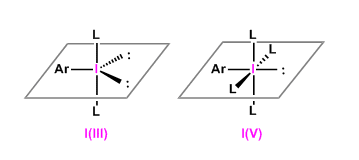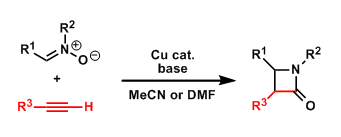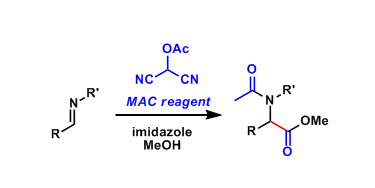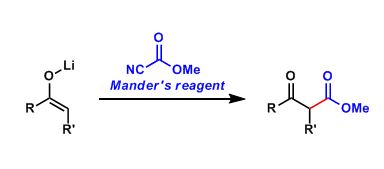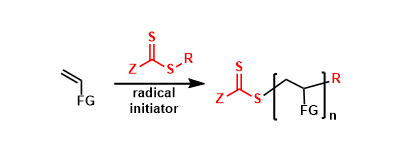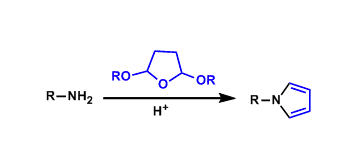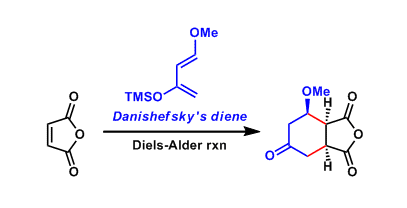General Characteristics Iodine can exist in high valence states because of its higher polarizability and smaller electronegativity compared with other halogen elements. Hypervalent iodine compounds ...
Posts by Category: Reactions
Kinugasa Reaction
General Characteristics In the presence of copper catalysts, nitrones and terminal alkynes undergo 1,3-dipolar cycloaddition to give β-lactams. General References Kinugasa, M.; Hashimoto, S. J. Chem. ...
MAC Reagent
General Characteristics Dicyanomethyl acetate, known as MAC (Masked Acyl Cyanide) reagent, is an acyl anion equivalent used for one-carbon homologation of aldehydes and imines. This reagent can be ...
AjiPhase Peptide Synthesis
General Characteristics The advantages of liquid-phase peptide synthesis (LPPS) over solid-phase synthesis (SPPS) include the use of reduced reagents and solvents and the ease of scaling up. The main ...
Mander’s Reagent
General Characteristics Methyl cyanoformate, also known as Mander’s reagent, is used to introduce a methoxycarbonyl group to metal enolates for the synthesis of β-ketoesters. Compared with ...
RAFT Polymerization
General Characteristics RAFT (Reversible Addition-Fragmentation Chain Transfer) is a type of controlled living radical polymerization methods. By using thiocarbonyl compounds as the chian transfer ...
Neighboring Group Participation
General Characteristics When the functional group(s) located near the reaction center directly influences the reactivity or selectivity of a given reaction, the effect is referred to as neighboring ...
Zincke Aldehyde
General Characteristics Upon nucleophilic attack by secondary amines, 1-(2,4-dinitrophenyl)pyridinium chloride (the Zincke salt) opens up to give 5-aminopenta-2,4-dienal (the Zincke aldehyde). ...
Clauson-Kaas Pyrrole Synthesis
General Characteristics Pyrroles can be synthesized by the condensation of 2,5-dialkoxytetrahydrofurans with primary amines. General References Clauson-Kaas, N. Acta Chem. Scand. 1952, 6, 667. Josey, ...
Danishefsky-Kitahara Diene
General Characteristics trans-1-Methoxy-3-trimethylsiloxy-1,3-butadiene is commonly called the Danishefsky-Kitahara diene (or simply Danishefsky diene). The high HOMO energy level resulting from two ...

